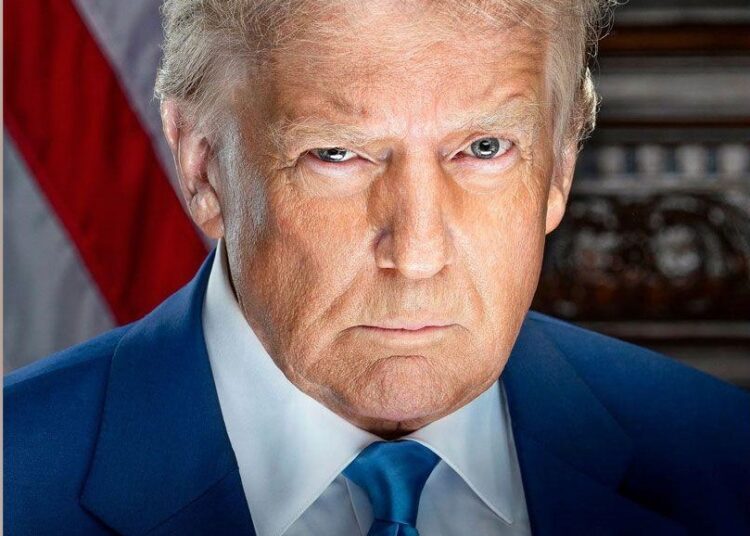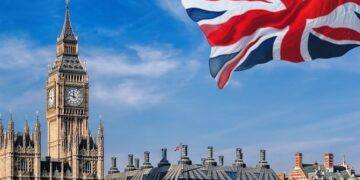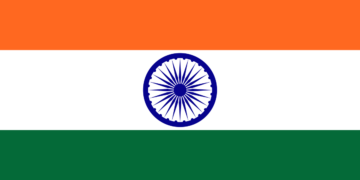Donald Trump took the oath of office on Monday. He officially became the 47th President of the United States of America in a ceremony that was performed indoors at the Capitol Rotunda because of the bitter weather conditions in Washington, DC.
In his inaugural address, the 78-year-old Trump said, “The new golden age of America begins right now,” adding that the country will “flourish and be respected” under his leadership as a “peacemaker and a unifier.”
Trump returned to the White House, an office he left four years ago in chaotic fashion when he struggled to concede defeat after he lost the election to the outgoing President Joe Biden in 2020.
However, Republican Trump put up a spirited effort and returned to sweep to victory in the November 5, 2024 presidential election, thoroughly defeating his main rival, Vice President Kamala Harris, the candidate of the Democratic Party.
It is the first time since the 1890s that a president who was defeated in an election has returned victorious to take the oath for a second time.
Trump, in his address, also criticised the immediate past administration of Joe Biden over its handling of the migrant crisis, saying the country has a crisis of “trust” in its government.
Tech billionaires, cabinet nominees and former presidents graced the ceremony, where Trump swore to “preserve, protect and defend” the Constitution.At the time of filing this report on Monday, Trump was set to declare a “national emergency” at the US-Mexico border, declare drug cartels as terrorists, and scrap government diversity programmes as part of a blitz of executive orders in the coming hours.
Trump’s second term in office is sure to cause some anxiety and uncertainty about the direction of US policy on issues such as immigration, which he vowed to tackle from day one. The world will also pay attention to the approach of Trump on the war between Russia and Ukraine, which he promised to end, as well as the devastating Israeli war against Hamas in Gaza.
Trump takes some credit for the ceasefire deal between Hamas and Israel, brokered by Qatar, Egypt and the US, leading to hostage and prisoner releases between Israel and Hamas on Sunday.
As Trump returns to the White House, the world is waiting to see if he will be a transformed president who is different from the belligerent character he appeared to be in the first term.
Of particular importance is how the new US President will direct his policies towards Africa and Nigeria, its most populous country, and how the continents’ leaders will respond to whatever measures emanate from the White House under Trump.
Speaking to LEADERSHIP, former Nigerian High Commissioner to Singapore, Ambassador Ogbole Ode, said Trump’s first term was marked by the “doctrine of America first” policy, which was not a bad idea because every “country puts its national interest above every other thing”. He noted that during his first term, Trump’s global policies appeared to have alienated the US from the international arena, judging by the position and prestige of the US in global affairs.
He tasked African countries, especially Nigeria, to brace up for whatever challenge the Trump presidency might bring, whether it’s the much-touted ban on migrants into the US. He noted that African leaders can do this by “building their economies and stopping the over-dependence on handouts from the US and others.”
Also, Speaking to LEADERSHIP, Public intellectual Dr Katch Ononuju said Trump’s second coming may not have any “fundamental difference from the first when he referred to African countries in derogatory terms.” He noted, however, that Nigeria and the US have significant bilateral relations at the binational level, which the country can leverage to better its economy.
In his reaction, Dr Christian Okeke, a lecturer in the Department of Political Science at Nnamdi Azikiwe University Awka, Nigeria, with a specialisation in International Relations, said Trump’s inauguration is going to be a game changer within the international system, both in the negative and positive dimensions.
He noted that the greatest worry, just like in his first term, is the effect on developing countries and, to some extent, the competing states.
He said, “Largely for Africa and Nigeria, Trump’s presidency has always provided a double-edge effect, which should ordinarily contribute to the rapid development of the continent but has so far sadly proven to be a missed opportunity.
“For insurance, Trump’s trade protectionist measures, which could trigger tensions and policy summersaults, as well as his stringent immigration policies, in a real sense, offer opportunities for Africa to think inwards and improve governance for the benefit of her people.
“Expectedly, Trump’s early days in office will witness tariff hikes and universal 10 per cent tariff on foreign-produced goods and services with concomitant harm to trade flows and foreign reserves but come with a challenge for African leaders to consider beneficial local trade reformative policies and prioritisation of comparative advantages if there is genuine interest at all on regional development.
“Remittances to Africa will drop as Trump’s administration embarks on the deportation of undocumented migrants, but in the long run, African receiving countries stand to benefit from the returning skilled workers by way of local economic growth, especially if opportunities and the right environment are provided.”
Dr. Okeke said further that this is the time for African countries to vigorously pursue and strengthen intra-African trade through the African Continental Free Trade Area (AfCFTA).
“Instead of perceiving a bleak period, Trump’s second term should spur efforts by African leaders to stabilise their countries’ economies, improve governance, foster sustainable development and improve the power of their respective states’ global power.
“Since Trump’s administration is expected to implement drastic aid cuts, it is going to be a sort of rough ride for African political elites who arguably and largely have remained ultimate beneficiaries, but the next four years should lead to a rethink of the continent’s fiscal strategies and ways of turning her abundant human and natural resources into benefits for her people rather than continuing with incurable dependency on the West,” he said.
International Constitutional law expert Livingstone Wechie said Trump’s presidency would have deep implications for Africa and Nigeria, stressing that Trump’s approach will be an America-first agenda.
He said Trump might trigger some adjustments by Europe, NATO, and other Stakeholder bodies in the current conflict zones. “As for Ukraine, it will be a watershed to see what Trump will achieve if a deal can be reached to scale down the war with Russia,” Wechie said.
He added that Africa may need to tighten up and not expect to be spoon-fed with Donald Trump as America’s 47th President. He stressed that Trump will focus more on profit for America, and it will not be at the expense of the United States but based on the options for the USA to take a big brother lead.
“The option for Africa may be to leverage America’s desperate bid to unseat Russia and China in Africa. Trump may hinge his negotiations on causing Africa to look in the US’s direction, away from whatever the duo of Russia and China may be offering. Sadly, Africa contributes less than 3% of the global economy. The implication is that under Trump’s tenure, Africa must sit up,” he said.
Nigeria should take the lead in Africa, but Wechie believes that the country’s leadership in Africa is shrinking and may be further subordinated by Trump.
“The trend of policy somersault in Nigeria may negatively impact the opportunities at stake. Trump’s first administration began drafting a Free Trade Agreement with Kenya until President Joe Biden came in and set it aside in favour of the Strategic Trade and Investment Partnership.
“Trump did unveil a ‘new Africa Strategy’ to advance US trade and commercial ties with African nations aimed at dismantling Russian and Chinese dominance, but Africa has not been able to create a vantage for itself, making the region highly vulnerable, Wechie added.
In his reaction, Prof. Mukhtar Imam, a senior lecturer with the Department of Political Science and International Relations, Al-Muhibbah University Abuja, said there are high expectations that President Trump is considering developments worldwide.
Regarding US relations with Africa, Dr. Imam believes Trump may not treat Africa differently. Trump, being a businessman, will seize an opportunity wherever he finds one, adding that he may refrain from his typical rhetoric against Africa and do more business.
On the much-feared Trump immigration policy, Imam believes that Trump’s immigration policy will stand, even as he expressed hope that Africa remains a bridge to all.
He said, “There is no way that Trump will not engage with Africa on one level or another. This is an opportunity for African leaders to understand their worth and look inward to engage with leaders worldwide, not just in the US, on a mutually beneficial level.
“As far as Nigeria is concerned, the relationship with the US regarding trade will continue, but we need to look inward to have a balanced relationship. No country lives in isolation, and what you have to offer will give you an edge in the bargaining position, so Nigeria must do more.”





